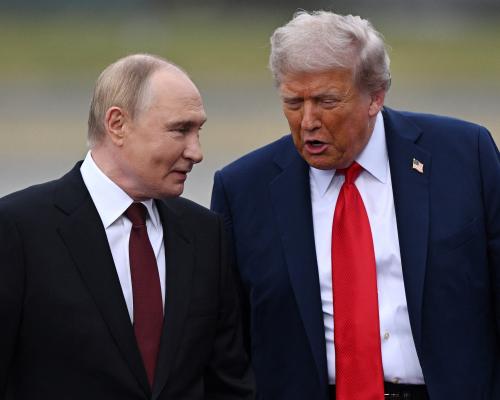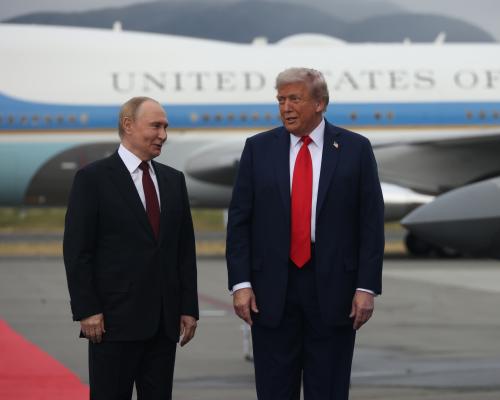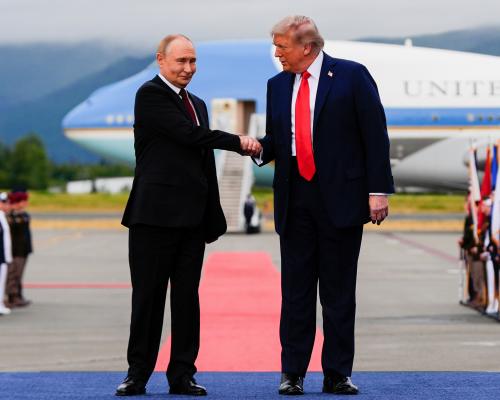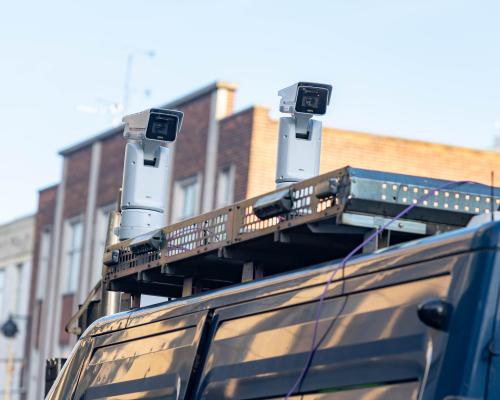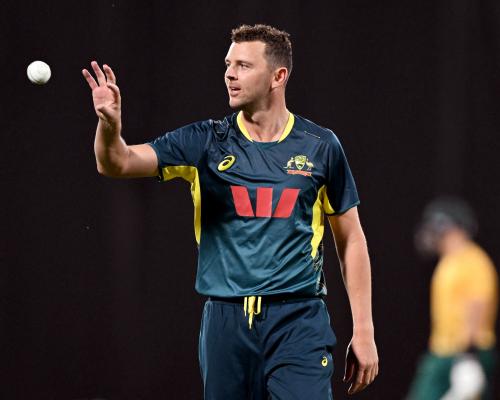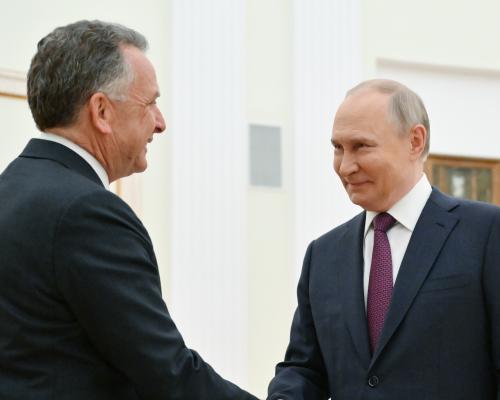
Donald Trump has said he will dispatch his special envoy to Moscow this week before his Friday deadline for progress to be made on ending the war in Ukraine.
Trump said Steve Witkoff would visit Moscow on Wednesday or Thursday. When asked on Sunday what message Witkoff would take to Russia and what Vladimir Putin could do to avoid new sanctions, the US president answered: “Yeah, get a deal where people stop getting killed.”
In Kyiv, there is little expectation that Witkoff will make a breakthrough with Putin, but a hope that Trump’s changed rhetoric and tougher stance on Moscow may lead to a real change in US support for Ukraine.
Trump came into office convinced he could do a deal with Putin, but in recent weeks appears to have become increasingly frustrated with Russian actions. On Thursday he described Russia’s continued attacks on civilian areas in Ukraine as “disgusting” and on Sunday said that two nuclear submarines that he ordered to be deployed after online threats from the former Russian president Dmitry Medvedev were now “in the region”, without giving further details.
Trump had initially announced in July a 50-day deadline for Russia and Ukraine to end the war, but said last week he said he no longer believed Russia was serious about ending the war and shortened it to “10 or 12” days, later clarified as this Friday, 8 August.
Trump has previously said the new measures he has in mind if the deadline is not met could involve “secondary tariffs” targeting Russia’s remaining trade partners, such as China and India.
Mykhailo Podolyak, an aide to Volodymyr Zelenskyy, said if Russia did not change its course by Friday, Kyiv expects the “irreversible logistics” of secondary sanctions on Russian oil exports to be set in motion.
“After that he’ll look whether this is helping to bring about the end of the war or not, and if not then he will move to the next step,” said Podolyak, in an interview in Kyiv.
The next move, he said, could be further sanctions, and the increased militarisation of Ukraine. “Trump has already said he’s ready to sell Europe as much weapons as they want [to pass to Ukraine]. Before he didn’t say that … This is already a different conception of the world,” he said.
Before that, though, all eyes will be on Witkoff’s visit to Moscow. On previous trips, he has held long one-on-one meetings with Putin and has spoken of his warm feelings for the Russian leader. On one occasion Putin gifted him an oil painting of Trump, on another, Witkoff arrived without an interpreter and used a Kremlin-provided translator.
The camaraderie has left both Kyiv and other US allies wondering whether Witkoff is capable of delivering harsh messages to Moscow, although his visit this week will be the first since Trump’s rhetoric on Ukraine became noticeably harsher.
The Kremlin said on Monday it was “always happy to see Mr Witkoff in Moscow” and a meeting with Putin was possible, spokesperson Dmitry Peskov told reporters.
Putin said on Friday that he was in favour of “a lasting and stable peace on solid foundations that would satisfy both Russia and Ukraine, and would ensure the security of both countries”.
Despite periodically making such statements, Putin has also made clear that Russia’s maximalist war goals remain essentially unchanged, demanding as a minimum control over four Ukrainian regions to which Moscow has laid claim, and a commitment that Ukraine will never join Nato.
Direct talks between Russia and Ukraine have taken place in Turkey, with the third round in Istanbul last month, but the last set of talks broke down in less than an hour and the only substantive outcome from the meetings has been a series of agreements on prisoner exchanges. Zelenskyy said on Sunday that a new exchange agreed at the last meeting in Istanbul would result in 1,200 Ukrainian troops returning home.
Zelenskyy has said he wants to meet directly with Putin, with Trump or Turkey’s Recep Tayyip Erdoğan as a mediator, but the Russian president has said he sees no point in a meeting until the outline of a ceasefire has been drawn up. However, the delegation he sent to Turkey, led by former culture minister and patriotic author Vladimir Medinsky, suggests the Kremlin is not serious about a deal.
“Those countries who thought Russia was ready for talks, and that the war could end at any moment if Ukraine would only agree to negotiations, they can now see that Russia is not ready for any real talks,” said Podolyak.
Russia continues to target Ukraine with almost nightly drone and missile attacks. Last week was one of the deadliest for some time in terms of civilian casualties, with one set of attacks on Kyiv killing 31 people including five children.
Both sides continue to target infrastructure in the opposing country with drones. Russia’s ministry of defence said on Monday that its air defences had intercepted 61 Ukrainian drones overnight.

